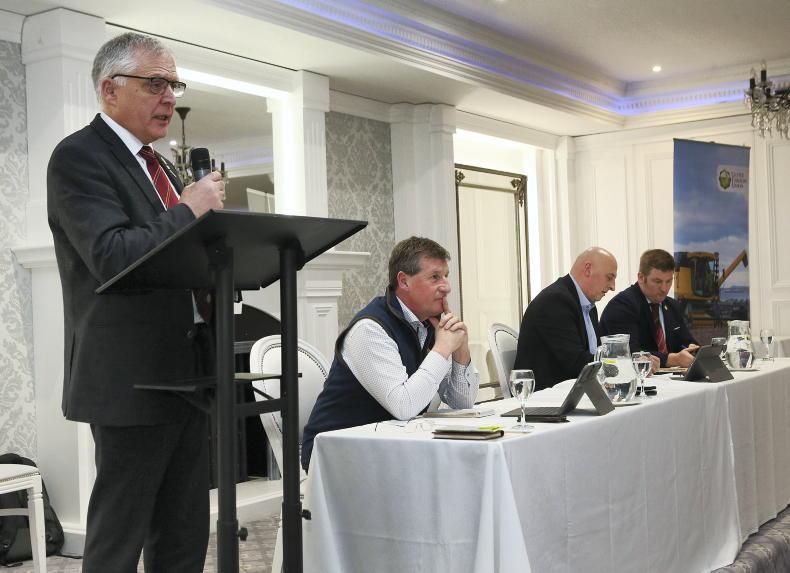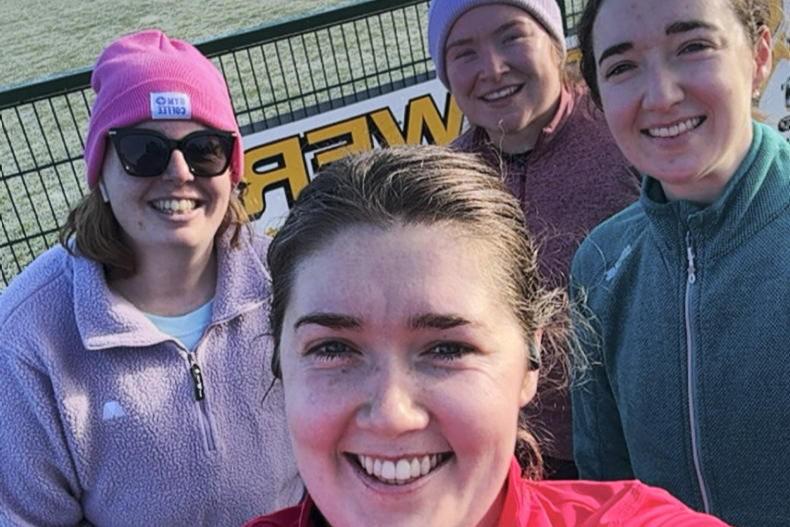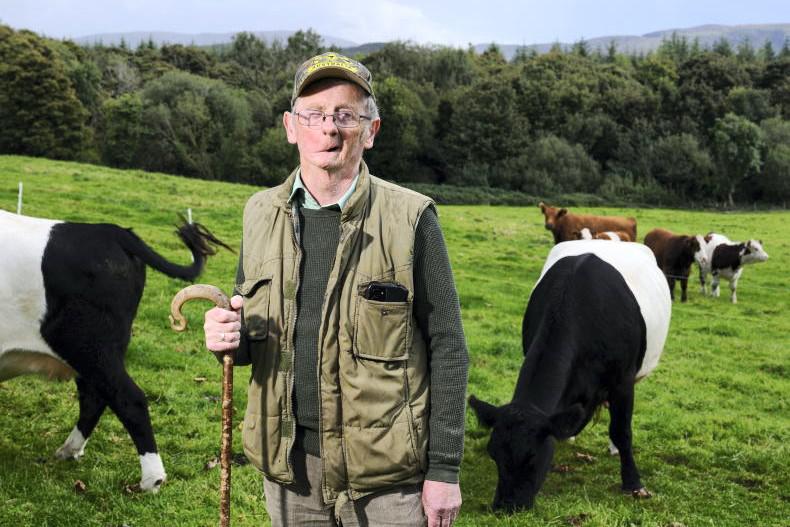Death is something that we will all go through. Because of this, Mother Nature gives us the wiring to cope with it. Dying is a process that I sometimes describe as being like the lights going out in a big building
Quickly or slowly, our biological symptoms gradually switch themselves off, leaving us unconscious, before the last remaining lights in our body go out.
If there was anything to fear, then those who deal with death every day would become more afraid of it. But the reverse is true, the more experience you have of death, the less afraid of it you become.
The emotional process of dying
This emotional wiring that prepares us for our own death, starts to develop a long time before we will ever have to face it. We start learning this process by assisting our parents and sometimes our brothers, sisters and other loved ones at the end of their life.
As we get older, we go into a role reversal with our parents. We gradually take more of the adult role and they the child. This role reversal finally completes itself for both our parents and us as they enter their final days.
Nearing death brings an incredible honesty with it. Most of what we strive for becomes pale and meaningless when faced with our impending death.
Spending these last times with each other allows us to tie up unresolved issues that we have with each other. We can say goodbye by expressing our feelings without resentment, letting go of those barriers. This allows us to let go of life and die at peace.
Burial ceremonies further help us to let go and start the process of moving on
The wiring that enables us to do this when our time comes, develops by helping our elderly as they gradually pass from this life. The ultimate insight that each of us achieves from all of this, is that life is not always about me. Realising this creates a peace, which helps us complete our own circle of life when our time comes.
Burial ceremonies further help us to let go and start the process of moving on. They are an essential part of our life, enabling us to grieve, support each other and let go.
They are also an essential part of rural life and are the cement in how rural communities consolidate themselves.
Old arguments and resentments are let go, even temporarily, letting us show our support and respect for each other as people.
It is an absolute honour to be let support someone as they leave this life and transition from one existence to another
Rural communities are given the chance to focus on what’s really important in life and in doing so, are given the opportunity to place principles before any personal issues that might have been.
We know that our elderly will die, and we are biologically designed to be comforters. It is an absolute honour to be let support someone as they leave this life and transition from one existence to another.
But, COVID-19 brings with it a new hidden issue for rural Ireland, one that is changing the very fabric of the way we live, die and function as a community.
The new reality
There have been reports in the media about the experience in other countries of letting loved ones die alone, and as their experience replicates here, we are entering a new world. We are now faced with the stark reality that we are going to have to let members of our family die without any of their loved ones being present.
As anyone who has had to do it will tell you, letting a loved one face that final journey on their own is one of the most gut-wrenching experiences we will ever face in this life.
Letting our elderly die on their own leaves so many doors open that we cannot shut
The experience in Italy, where health professionals report of elderly people dying alone, terrified of facing that final journey alone; having to die unsupported, afraid, leaving so much left unsaid and unresolved.
Similarly, their families having to leave them to die on their own, not able to support and protect them, instinctively doing what we are designed to do.
This is something we don’t have the wiring for. This is completely uncharted waters for us all. Letting our elderly die on their own leaves so many doors open that we cannot shut. Accentuating our powerlessness over life that may have subsequent consequences that we can’t foresee.
The only pain we encounter in life is the pain of change
How long will this last? How many of us will have to face this appalling vista? Nobody knows.
We can only hope that our sense of community and the brilliant work of our frontline workers will help us cope with the tragedy that is befalling families in Ireland.
Nobody has a patent on grief nor how to cope with it. The only pain we encounter in life is the pain of change. And there is no greater change that we will have to adapt to than having to let our loved ones die on their own.
Is there anything we can do?
There are strategies for when we can’t be there at our loved one’s death. However, there is precious little that will help much. Whilst there is loads of helpful information out there about grieving, somehow it looks a bit patronising when applied to this particular situation.
However, understanding what is happening can be helpful and can create a universality of common experience that can help us at least support each other as a community:
1 Allow yourself to grieve. It’s completely natural to feel loneliness, pain and sadness. We are only human. Contact services in your local parish or the chaplaincy may be able to offer support in a hospital setting.
2 Reach out to others in similar situations. Talk openly about your feelings and let them talk about theirs. Whilst others in the community can be very supportive, they just can’t understand unless they are going through it too.
3 Embrace your memories of your loved ones.
4 Embrace the relationships you have. Tell them how much they mean to you. Allow this closeness provides a protective wall around you all.
5 Re-engage old relationships that help you bring balance back into your life.
6 Would your loved one want you to be in despair? Why not ask them to help you move on.
7 Try to make peace with the circumstances the best way you can.
8 Do what you love. Learn from this about the fragility of life. Let this experience influence how you live your life in the future.
Supporting those who have
lost someone to COVID-19
During the TB epidemic of the 50s and 60s, not only were families affected by the disease but by how communities reacted to an outbreak in a family.
Fear of infection caused communities to avoid those infected. As a result, the subsequent rejection and isolation led to feelings of shame and guilt in those afflicted for becoming infected in the first place.
Survival of rural communities will depend on our responses to our most vulnerable members
I’m seeing instances where people are reluctant to ask if it was COVID-19 that the person died from, or it’s muttered under our breath in quiet corners. Closed funerals can only exacerbate these dangers.
Putting our common welfare first has never been as important as now. Survival of rural communities will depend on our responses to our most vulnerable members.
We might not be able to attend the funeral, but we can show our respect by standing outside our door as it passes or lighting a candle in our window and posting it on Facebook.
Be practical
These are things that very many of you atomically do already when someone in your community dies, and it does help.
Help keep the farm going whilst the family are grieving. Prepare a meal for the kids. Mow the lawn. Take the bins out. There are infinite ways where we can show love, support and respect whilst maintaining social distance, so be creative.
Actions that reinforce to the person that this is a community illness, not your illness are a thousand times more effective than words.
Many things that are lost can be found, however, one thing that will never be found if it is lost is rural community life.
To protect rural Ireland, we must reach out and ensure that those who have lost someone never feel that they have lost their community.
Read more
The pathelogical critic during isolation
Enda Murphy: keep the plane flying
Death is something that we will all go through. Because of this, Mother Nature gives us the wiring to cope with it. Dying is a process that I sometimes describe as being like the lights going out in a big building
Quickly or slowly, our biological symptoms gradually switch themselves off, leaving us unconscious, before the last remaining lights in our body go out.
If there was anything to fear, then those who deal with death every day would become more afraid of it. But the reverse is true, the more experience you have of death, the less afraid of it you become.
The emotional process of dying
This emotional wiring that prepares us for our own death, starts to develop a long time before we will ever have to face it. We start learning this process by assisting our parents and sometimes our brothers, sisters and other loved ones at the end of their life.
As we get older, we go into a role reversal with our parents. We gradually take more of the adult role and they the child. This role reversal finally completes itself for both our parents and us as they enter their final days.
Nearing death brings an incredible honesty with it. Most of what we strive for becomes pale and meaningless when faced with our impending death.
Spending these last times with each other allows us to tie up unresolved issues that we have with each other. We can say goodbye by expressing our feelings without resentment, letting go of those barriers. This allows us to let go of life and die at peace.
Burial ceremonies further help us to let go and start the process of moving on
The wiring that enables us to do this when our time comes, develops by helping our elderly as they gradually pass from this life. The ultimate insight that each of us achieves from all of this, is that life is not always about me. Realising this creates a peace, which helps us complete our own circle of life when our time comes.
Burial ceremonies further help us to let go and start the process of moving on. They are an essential part of our life, enabling us to grieve, support each other and let go.
They are also an essential part of rural life and are the cement in how rural communities consolidate themselves.
Old arguments and resentments are let go, even temporarily, letting us show our support and respect for each other as people.
It is an absolute honour to be let support someone as they leave this life and transition from one existence to another
Rural communities are given the chance to focus on what’s really important in life and in doing so, are given the opportunity to place principles before any personal issues that might have been.
We know that our elderly will die, and we are biologically designed to be comforters. It is an absolute honour to be let support someone as they leave this life and transition from one existence to another.
But, COVID-19 brings with it a new hidden issue for rural Ireland, one that is changing the very fabric of the way we live, die and function as a community.
The new reality
There have been reports in the media about the experience in other countries of letting loved ones die alone, and as their experience replicates here, we are entering a new world. We are now faced with the stark reality that we are going to have to let members of our family die without any of their loved ones being present.
As anyone who has had to do it will tell you, letting a loved one face that final journey on their own is one of the most gut-wrenching experiences we will ever face in this life.
Letting our elderly die on their own leaves so many doors open that we cannot shut
The experience in Italy, where health professionals report of elderly people dying alone, terrified of facing that final journey alone; having to die unsupported, afraid, leaving so much left unsaid and unresolved.
Similarly, their families having to leave them to die on their own, not able to support and protect them, instinctively doing what we are designed to do.
This is something we don’t have the wiring for. This is completely uncharted waters for us all. Letting our elderly die on their own leaves so many doors open that we cannot shut. Accentuating our powerlessness over life that may have subsequent consequences that we can’t foresee.
The only pain we encounter in life is the pain of change
How long will this last? How many of us will have to face this appalling vista? Nobody knows.
We can only hope that our sense of community and the brilliant work of our frontline workers will help us cope with the tragedy that is befalling families in Ireland.
Nobody has a patent on grief nor how to cope with it. The only pain we encounter in life is the pain of change. And there is no greater change that we will have to adapt to than having to let our loved ones die on their own.
Is there anything we can do?
There are strategies for when we can’t be there at our loved one’s death. However, there is precious little that will help much. Whilst there is loads of helpful information out there about grieving, somehow it looks a bit patronising when applied to this particular situation.
However, understanding what is happening can be helpful and can create a universality of common experience that can help us at least support each other as a community:
1 Allow yourself to grieve. It’s completely natural to feel loneliness, pain and sadness. We are only human. Contact services in your local parish or the chaplaincy may be able to offer support in a hospital setting.
2 Reach out to others in similar situations. Talk openly about your feelings and let them talk about theirs. Whilst others in the community can be very supportive, they just can’t understand unless they are going through it too.
3 Embrace your memories of your loved ones.
4 Embrace the relationships you have. Tell them how much they mean to you. Allow this closeness provides a protective wall around you all.
5 Re-engage old relationships that help you bring balance back into your life.
6 Would your loved one want you to be in despair? Why not ask them to help you move on.
7 Try to make peace with the circumstances the best way you can.
8 Do what you love. Learn from this about the fragility of life. Let this experience influence how you live your life in the future.
Supporting those who have
lost someone to COVID-19
During the TB epidemic of the 50s and 60s, not only were families affected by the disease but by how communities reacted to an outbreak in a family.
Fear of infection caused communities to avoid those infected. As a result, the subsequent rejection and isolation led to feelings of shame and guilt in those afflicted for becoming infected in the first place.
Survival of rural communities will depend on our responses to our most vulnerable members
I’m seeing instances where people are reluctant to ask if it was COVID-19 that the person died from, or it’s muttered under our breath in quiet corners. Closed funerals can only exacerbate these dangers.
Putting our common welfare first has never been as important as now. Survival of rural communities will depend on our responses to our most vulnerable members.
We might not be able to attend the funeral, but we can show our respect by standing outside our door as it passes or lighting a candle in our window and posting it on Facebook.
Be practical
These are things that very many of you atomically do already when someone in your community dies, and it does help.
Help keep the farm going whilst the family are grieving. Prepare a meal for the kids. Mow the lawn. Take the bins out. There are infinite ways where we can show love, support and respect whilst maintaining social distance, so be creative.
Actions that reinforce to the person that this is a community illness, not your illness are a thousand times more effective than words.
Many things that are lost can be found, however, one thing that will never be found if it is lost is rural community life.
To protect rural Ireland, we must reach out and ensure that those who have lost someone never feel that they have lost their community.
Read more
The pathelogical critic during isolation
Enda Murphy: keep the plane flying










SHARING OPTIONS